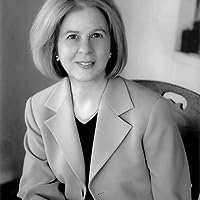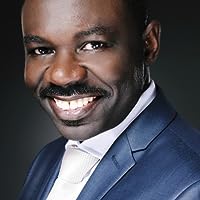Gentiles Quotes
Quotes tagged as "gentiles"
Showing 1-7 of 7

“I regard anti-Semitism as ineradicable and as one element of the toxin with which religion has infected us. Perhaps partly for this reason, I have never been able to see Zionism as a cure for it. American and British and French Jews have told me with perfect sincerity that they are always prepared for the day when 'it happens again' and the Jew-baiters take over. (And I don't pretend not to know what they are talking about: I have actually seen the rabid phenomenon at work in modern and sunny Argentina and am unable to forget it.) So then, they seem to think, they will take refuge in the Law of Return, and in Haifa, or for all I know in Hebron. Never mind for now that if all of world Jewry did settle in Palestine, this would actually necessitate further Israeli expansion, expulsion, and colonization, and that their departure under these apocalyptic conditions would leave the new brownshirts and blackshirts in possession of the French and British and American nuclear arsenals. This is ghetto thinking, hardly even fractionally updated to take into account what has changed. The important but delayed realization will have to come: Israeli Jews are a part of the diaspora, not a group that has escaped from it. Why else does Israel daily beseech the often-flourishing Jews of other lands, urging them to help the most endangered Jews of all: the ones who rule Palestine by force of arms? Why else, having supposedly escaped from the need to rely on Gentile goodwill, has Israel come to depend more and more upon it? On this reckoning, Zionism must constitute one of the greatest potential non sequiturs in human history.”
― Hitch 22: A Memoir
― Hitch 22: A Memoir

“One of the questions asked by al-Balkhi, and often repeated to this day, is this: Why do the children of Israel continue to suffer? My grandmother Dodo thought it was because the goyim were jealous. The seder for Passover (which is a shame-faced simulacrum of a Hellenic question-and-answer session, even including the wine) tells the children that it's one of those things that happens to every Jewish generation. After the Shoah or Endlösung or Holocaust, many rabbis tried to tell the survivors that the immolation had been a punishment for 'exile,' or for insufficient attention to the Covenant. This explanation was something of a flop with those whose parents or children had been the raw material for the 'proof,' so for a time the professional interpreters of god's will went decently quiet. This interval of ambivalence lasted until the war of 1967, when it was announced that the divine purpose could be discerned after all. How wrong, how foolish, to have announced its discovery prematurely! The exile and the Shoah could now both be understood, as part of a heavenly if somewhat roundabout scheme to recover the Western Wall in Jerusalem and other pieces of biblically mandated real estate.
I regard it as a matter of self-respect to spit in public on rationalizations of this kind. (They are almost as repellent, in their combination of arrogance, masochism, and affected false modesty, as Edith Stein's 'offer' of her life to expiate the regrettable unbelief in Jesus of her former fellow Jews.) The sage Jews are those who have put religion behind them and become in so many societies the leaven of the secular and the atheist.”
― Hitch 22: A Memoir
I regard it as a matter of self-respect to spit in public on rationalizations of this kind. (They are almost as repellent, in their combination of arrogance, masochism, and affected false modesty, as Edith Stein's 'offer' of her life to expiate the regrettable unbelief in Jesus of her former fellow Jews.) The sage Jews are those who have put religion behind them and become in so many societies the leaven of the secular and the atheist.”
― Hitch 22: A Memoir

“When John accuses "evildoers" of leading gullible people into sin, what troubles him is what troubled the Essenes: whether—or how much—to accommodate pagan culture. And when we see Jesus' earliest followers, including Peter, James, and Paul, not as we usually see them, as early Christians, but as they saw themselves—as Jews who had found God's messiah—we can see that they struggled with the same question. For when John charges that certain prophets and teachers are encouraging God's people to eat "unclean" food and engage in "unclean" sex, he is taking up arguments that had broken out between Paul and followers of James and Peter about forty years earlier—an argument that John of Patmos continues with a second generation of Paul's followers. For when we ask, who are the "evildoers" against whom John warns? we may be surprised by the answer. Those whom John says Jesus "hates" look very much like the Gentile followers of Jesus converted through Paul's teaching. Many commentators have pointed out that when we step back from John's angry rhetoric, we can see that the very practices John denounces are those that Paul had recommended.”
― Revelations: Visions, Prophecy, and Politics in the Book of Revelation
― Revelations: Visions, Prophecy, and Politics in the Book of Revelation

“One example is the familiar parable of the prodigal son (Luke 15:11-32), which in some ways might be better called the parable of the elder brother. For the point of the parable as a whole - a point frequently overlooked by Christian interpreters, in their eagerness to stress the uniqueness and particularity of the church as the prodigal younger son who has been restored to the father's favor - is in the closing words of the father to the elder brother, who stands for the people of Israel: 'Son, you are always with me, and all that is mine is yours. It was fitting to make merry and be glad, for this your brother was dead, and is alive; he was lost, and is found.' The historic covenant between God and Israel was permanent, and it was into this covenant that other peoples too, were now being introduced. This parable of Jesus affirmed both the tradition of God's continuing relation with Israel and the innovation of God's new relation with the church - a twofold covenant.”
― Jesus Through the Centuries: His Place in the History of Culture
― Jesus Through the Centuries: His Place in the History of Culture

“Sabato ilianzishwa na Mungu siku ya saba ya uumbaji wake. Siku ya Sabato ni siku takatifu, iliyoko katika Amri Kumi za Mungu, ambayo hatuna budi kuitunza na kuiheshimu. Sheria ya Siku ya Sabato haikufa baada ya kifo cha Yesu Kristo msalabani kama Wakolosai wanavyodai. Wakolosai walifuata falsafa za kipagani, na walizileta falsafa hizo ndani ya mwili wa Kristo ambalo ni kanisa. ‘Usiiamini’ Wakolosai 2:17. Iamini Wakolosai 2:20-23, ambapo Paulo anafundisha Mataifa jinsi ya kuitunza Sabato, na 1 Wakorintho 12:27 ambayo inatoa maana halisi ya Wakolosai 2:17. ‘Mwili wako ni wa Kristo’ ni tofauti na ‘mwili wa Kristo’ na ni tofauti na kanisa. Ukiamini kama mwili wako ni wa Kristo na ni kanisa, utaitunza Sabato.”
―
―
“When someone uses Philosophy as an indispensable tool for tackling Theology and knows no other way for approaching that scripture-related Science, then you must have already figured out by now that he is a gentile who is standing right before you.”
― Quotable: My Worldview
― Quotable: My Worldview

“...there I was, trying to hold up my end in a city where you can't even buy a decent bagel. I don't mean to make it sound as if it's all about being Jewish, but that's another thing about Washington. It makes you feel really Jewish if that's what you are. It's not just that there are so many Gentiles there; it's that the Gentiles are so Gentile. Listen, even the Jews there are sort of Gentile.”
― Heartburn
― Heartburn
All Quotes
|
My Quotes
|
Add A Quote
Browse By Tag
- Love Quotes 98k
- Life Quotes 76.5k
- Inspirational Quotes 73.5k
- Humor Quotes 44k
- Philosophy Quotes 30k
- Inspirational Quotes Quotes 27k
- God Quotes 26.5k
- Truth Quotes 24k
- Wisdom Quotes 24k
- Romance Quotes 23.5k
- Poetry Quotes 22.5k
- Death Quotes 20k
- Life Lessons Quotes 20k
- Happiness Quotes 19k
- Quotes Quotes 18k
- Faith Quotes 18k
- Hope Quotes 18k
- Inspiration Quotes 17k
- Spirituality Quotes 15k
- Religion Quotes 15k
- Motivational Quotes 15k
- Writing Quotes 15k
- Relationships Quotes 14.5k
- Life Quotes Quotes 14.5k
- Love Quotes Quotes 14k
- Success Quotes 13.5k
- Time Quotes 12.5k
- Motivation Quotes 12.5k
- Science Quotes 11.5k
- Motivational Quotes Quotes 11.5k

